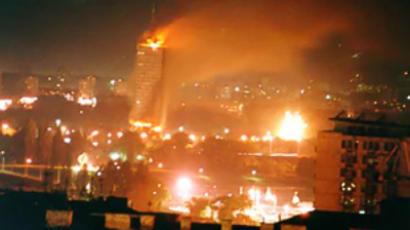Russia ratifies Protocol 14 on human rights court reform
The Duma has ratified Protocol 14 to the European Convention for the Protection of Human Rights (ECHR), which paves the way for court reform.
On Thursday, Boris Gryzlov, State Duma House Speaker, announced that the lower house of the Russian parliament would vote for the protocol after EU Council of Ministers came to agreement over Russia’s original reservations against the document.
“The EU Council of Ministers,” Gryzlov said, “…unanimously agree with Russia's position on two major points.”
Russia was the last of the 47 Council of Europe member-states to ratify Protocol 14, which is designed to overhaul the procedures of the Strasbourg court.
Russian parliamentarians had objected to a number of issues, including a lack of collective leadership regarding case reviews. They also insisted that the “troika of judges” handling each case should include a representative of the country whose case is under review.
Initially, some member states of the Council of Europe expressed harsh criticism over Russia's
refusal to ratify the Protocol, but consultations between the to break the impasse.
“All issues concerning Russia, which the Strasbourg court will review,” Gryzlov told legislators, “will be settled with the participation of Russian representatives.”
Gryzlov added that the national judicial system… will have priority in the review of issues at the
Strasbourg court.
The European Court of Human Rights
The European Court of Human Rights (ECHR) in Strasbourg, France is an international judicial body established under the European Convention on Human Rights to monitor respect of human rights on a state-by-state basis.
The Court was instituted as an official entity on 1 November 1998, and by the end of 2005, it had delivered 5,968 judgments.
The Ministers of the Council of Europe supervise the execution of Court judgments. This body cannot force states to comply with its rulings, and the penalty for non-compliance is expulsion from the Council of Europe.
Andrei Denisov, First Deputy Foreign Minister, told a Duma meeting on Friday that ratification of Protocol 14 will strengthen Russia's position in its dialogue with the Council of Europe on the most pressing issues in foreign policy.
Russia’s “non-ratification” of the protocol had been repeatedly used by Russia's counterparts in Europe to impose responsibility on the Russian authorities for the workload of the European Court, Denisov said.
“Everybody felt pressure both at the level of parliamentary contacts and at the level of the talks among representatives of the executive authorities,” he added.
According to sources close to the negotiations, Russia received numerous “statements of assurances” from the European Court and the Committee of Ministers of the Council of Europe that helped to ease Russia’s previous apprehensions about the protocol.
Presently, over 100,000 grievances, which include approximately 25,000 in Russia's file, are being processed in the European Court of Human Rights.
Denisov noted that 40 percent of the complaints are related to improper conditions of imprisonment and non-fulfillment of requirements of Russia's judicial instances.
“When we put our judicial system in order, there will be no need to appeal to the European Court of Human Rights,” he said.













